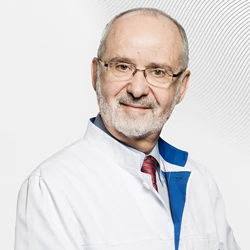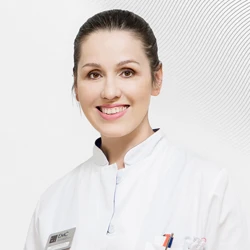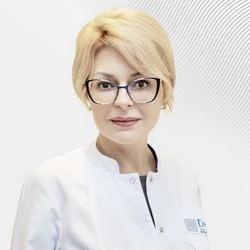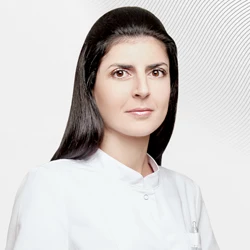To date, scientists still cannot say with certainty what is the cause of breast cancer (BC), but it has been proven that a combination of many risk factors, including diet and lifestyle, can increase the risk of developing this disease.
An important role in "keeping tumor cells dormant" is played by the immune system, whose active status also depends on nutrition and lifestyle. Therefore, switching to a healthy diet that eliminates the ingestion of carcinogens and increases the intake of fiber (vegetables, fruits) and protein foods (legumes, meat, fish), not only normalizes weight and, as a result, hormonal levels, but also improves the functioning of the gastrointestinal tract. In turn, this improves the general condition of patients and increases their physical activity. Therefore, it can be concluded that not specific foods, but overall improvement of the general condition against the background of normalization of nutrition and the formation of a healthy (correct) lifestyle improve the prognosis of patients not only with breast cancer, but also any other disease.
We bring to your attention a translation of an article with an overview of useful products from the point of view of preventing the development and recurrence of breast cancer, published on the CNN website:
There is an opinion that improving eating behavior increases the likelihood that a woman will not get breast cancer or avoid a relapse. Not all oncologists share the opinion about the relationship between nutrition and life expectancy, citing insufficient evidence. But nutrition doctors say that women should not only follow the principles of a healthy diet, but also include certain foods in their diet to increase their chances of survival.
Soy
Dr. Barry Boyd, founder of the integrative medicine program at Greenwich Hospital at Yale University and director of the Department of Nutrition Oncology, says women should not be afraid of soy.
"There were concerns that soy contains substances with estrogen-like effects that promote the growth of breast cancer cells," says Boyd. "Science has proven not only the absence of risk, but also the possible beneficial effects."
Boyd cites a study published in the American Journal of Clinical Nutrition that examined soy consumption in the United States and China in 9,500 women who had been diagnosed with breast cancer. According to the researchers, the consumption of isoflavones contained in soy caused a "statistically significant reduction in the risk of recurrence" in women who had invasive breast cancer.
A study published this year in the Asia-Pacific Journal of Cancer Prevention showed similar results. This analysis examined more than 11,000 breast cancer patients. The researchers concluded that soy consumption after diagnosis was accompanied by a reduced risk of mortality and recurrence of the disease.
The American Cancer Society makes more cautious recommendations and notes that although soy is a good alternative source of protein, "women with breast cancer should consume it in moderation" and avoid taking soy-based pills, powders, and dietary supplements containing large amounts of isoflavones.
Cabbage, sweet potatoes and pumpkin
Eating foods rich in carotenoids was associated with a reduced risk of breast cancer recurrence. Carotenoids are natural pigments found in yellow and orange-colored foods (such as carrots, sweet potatoes, and pumpkins) and greens with dark green leaves, such as cabbage, spinach, and leafy beets.
In a 2009 study published in Cancer Epidemiology, increased carotenoid intake was accompanied by "an increased likelihood of breast cancer absence." The results of the report are based, in particular, on an analysis of women's lifestyle conducted with the financial support of the National Institutes of Health-funded
investigation.
To increase carotenoid intake, Dr. Mitchell Gaynor advises his breast cancer patients to eat more cruciferous vegetables. Gaynor, founder of the Gaynor Center for Integrative Oncology, provides a simple explanation: "Today's ideas about cancer are quite different from those that prevailed in the 1970s, when President Nixon declared war on cancer. Now we know that some foods create unfavorable conditions in the body for the development of cancer cells. Our goal is to keep cancer cells in a dormant state, and for that, it's important what you eat."
Examples of cruciferous vegetables: broccoli, curly, cabbage, and cauliflower.
Salmon, haddock and cod
Eating fish rich in omega-3 fatty acids is also associated with an improved prognosis for breast cancer. This category of fish includes salmon, haddock, cod, halibut and sardines.
A study published in 2011 in the Journal of Nutrition showed that the consumption of eicosapentaenoic (EPA) and docosahexaenoic (EGC) fatty acids found in fish "suppresses the proliferation of breast cancer cells" and reduces the "progression of breast tumors." In women who were diagnosed with early-stage breast cancer and who received large amounts of EPA and DHA simultaneously with treatment, the risk of recurrence decreased by about 25%
.
It is important to note that this beneficial effect was observed only when eating fish, and not fish oil supplements.
Gaynor says that eating fish rich in omega-3 fatty acids is also good for health, as it promotes the proper functioning of the immune system and reduces the risk of heart disease and diabetes in women.
The American Cancer Society does not recommend eating a lot of fatty foods: "High-fat diets are usually high in calories. This can lead to obesity, which, in turn, is accompanied by an increased risk of several types
of cancer."
Whole grains and legumes
Women whose diets contain a lot of dietary fiber may prolong their lives.
"Following a high-fiber diet is associated with a reduction in overall mortality in breast cancer patients," says Dr. Keith Block, director of Scientific and medical Affairs at the Block Center for Integrative Cancer Therapy in Skokie, Illinois.
According to Blok, dietary fiber is useful because it helps women control their appetite and can reduce the number of calories consumed. Achieving and maintaining a normal weight, especially in the postmenopausal period, is considered one of the factors contributing to an increase in life expectancy.
"If you look at the causes of cancer, most of them are caused by excess weight," she says. "The fatter you are, the more estrogen you have in your body, and the more estrogen you have, the higher your risk of breast cancer.
"
"But cancer survival depends not only on eating certain types of vegetables or fruits. A proper lifestyle in general, including physical exercise, is important. The diet is only part of the overall system.
"
Was this information helpful?
Questions and answers
Ask a Question
Institute of Oncology
Get a consultation
Timely consultation to prevent negative consequences for your health
The leading European multidisciplinary clinic
We work at the level of the best international standards, introducing and developing advanced treatment methods
600
world-renowned
doctors
doctors
57
treatment
options
options
36
years taking care
of your health
of your health
24/7
we work
at any
convenient time
at any
convenient time

ICI INTERNATIONAL QUALITY CERTIFICATES ISSUING SERVICES LLC
International accreditation

Joint Commission International
International accreditation 2018, 2021

Luxury Lifestyle Awards
Best International Private Group of Companies (hospitals) in the Luxury category

International Hospital Federation
Member of the International Hospital Federation
Reviews
Anonymous,
City: -
Super nice
Same as 1st visit Welcome and Secretary were super nice Doctor Abdulin
was great and super pro.
Clinic:
Institute of Oncology
Doctor:
Iskander Abdullin
3 July 2025
Anonymous user Name,
City: -
I wish you all good health and professional success
Many thanks to the doctors Moskalets E. R. and Penkova O. V., who described
my pictures on the day of the study, as well as to the staff of the PET CT department Nikolay, nurse Ekaterina, laboratory assistants Eduard and Nikolay, who were with me from the beginning and until the
end of the study, we worked in a coordinated, professional and friendly manner.
... more
Clinic:
Institute of Oncology
Doctor:
Elina Moskalets
26 March 2025
Konstantin Vladimirovich,
City: -
I express my gratitude for the treatment!
He came back with severe pain in the neck. The diagnosis revealed an intervertebral
hernia. The very next day, the operation was carried out, everything was very fast. After the operation, he was surrounded by nurses. I would especially like to express my gratitude to:
Krivoshapkin Alexey Leonidovich, Yulia Markina, Vladimir Klimov, Orkhan Abdullayev, Gleb Sergeevich Sergeev, and Alexander Loginov.
... more
Clinic:
Institute of Oncology , Neurosurgery Clinic
Doctor:
Krivoshapkin Alexey
16 March 2025
Anonymous user Name,
City: -
We thank all the staff of the clinic for saving our lives
We thank Alexey Leonidovich Krivoshapkin, Alexey Sergeevich Gaitan, Orkhan
Abdullayev and all the clinic staff for saving our lives.
Clinic:
Institute of Oncology , Neurosurgery Clinic
Doctor:
Krivoshapkin Alexey
7 March 2025
Anonymous user Name,
City: -
Endless gratitude
Endless thanks to my dear Dr. Pavel Koposov.
Clinic:
Institute of Oncology
Doctor:
Pavel Koposov
4 March 2025
Vladimir,
City: Yessentuki
About surgeon Ruchkin D. V.
Dmitry Ruchkin is the epitome of the highest professionalism , dedication,
modesty and dedication to his work. His method of gastroectomy is unique, allowing you to eat and live a full life after a complex operation. A low bow to him and the surgeon Jan to Maria Nikolaevna —
members of his team.
... more
Clinic:
Institute of Oncology
Doctor:
Dmitry Ruchkin
12 February 2025
Anonymous user Name,
City: -
Thank you to all the clinic staff!!!
All employees throughout the chain from reception to the end of the procedure
were very kind and attentive. I would like to express my gratitude to all of you, and I would like to especially mention doctor Ilya E. Loiko for his kind words and wishes. Thank you to all the clinic
staff!!!
... more
Clinic:
Institute of Oncology
Doctor:
Ilya Loyko
24 January 2025
S. V. Firmanov,
City: -
Gratitude from the patient
Many thanks to all the staff of the clinic, especially Pavel Koposov.
Clinic:
Institute of Oncology
Doctor:
Pavel Koposov
16 January 2025
Anonymous user Name,
City: -
Many thanks to the professional in his field
Thank you to the team of the Center for Radionuclide Diagnostics for their
well-coordinated, productive work and good mood during the preparation and conduct of the study. And, of course, a huge thank you to the professional in his field, Dr. Borzyanitsa. Happy New Year Happy New
year to the entire EMC team!
... more
Clinic:
Institute of Oncology
Doctor:
Stanislav Borzyanitsa
25 December 2024
Anonymous user Name,
City: -
Gratitude
Sincere thanks to Dr. Vasilyeva.
Clinic:
Institute of Oncology
Doctor:
Irina Vasilieva
12 December 2024
Anonymous user Name,
City: -
Thank you all very much from me and my family
Many thanks and best wishes from the bottom of my heart: Zhao V. A., Yuldashev
A. G., Vakhabova Yu. V., Zhizhko N. V. specialists from GOD. The medical staff is beyond praise.
Clinic:
Institute of Oncology
Doctor:
Anvar Iuldashev
12 December 2024
Anonymous user Name,
City: -
Thank you very much
Many thanks to Iskander Abdullin, the staff of the Center for Radiation
Diagnostics.
Clinic:
Institute of Oncology
Doctor:
Iskander Abdullin
11 December 2024
Anonymous user Name,
City: -
You can trust such professionals
The most important thing is care and tact at all stages of visiting the
clinic and, as a conclusion, professionalism of the highest level Dr. Irina Vasilyeva, who surprisingly combines knowledge, skills, experience, and sensitivity and empathy.
Clinic:
Institute of Oncology , Breast Clinic
Doctor:
Irina Vasilieva
9 December 2024
Anonymous user Name,
City: -
Gratitude to the doctor
Thanks to the doctor Vakhabova Julia Vyacheslavovna, she blessed me for
6 months...
Clinic:
Institute of Oncology
Doctor:
Yuliya Vakhabova
28 November 2024
Anonymous user Name,
City: -
I express my deep gratitude to the specialists of the highest class
I would like to express my deep gratitude to the top-class specialists,
Professor Yevgeny Libson, Director of the Cancer Center Salim Nidal, and Ilya Yevgenyevich Loiko for my essentially "salvation", for the extremely kind and sincere attitude.
Clinic:
Institute of Oncology
Doctor:
Evgeniy Libson (Israel)
26 November 2024
Anonymous user Name,
City: -
I got ALL my questions answered
I was at the consultation of Professor Vsevolod Borisovich Matveev... I
got ALL my questions answered... And even more...In a word-not a man, but a HUMAN BEING...!!! The staff is friendly, answers all questions, helps, etc... People with health problems come in...They all have no
time for this or that...Employees understand all this and make their stay in the clinic as comfortable as possible...
... more
Clinic:
Institute of Oncology , Urology Clinic
Doctor:
Vsevolod Matveev
22 November 2024
Popov Khariton,
City: -
Thank you very much
Many thanks to Iskander Abdullin, Alexey Krivoshapkin, Natalia Zharinova,
Elmira Sultanova, Alla Artamonova and all the staff of the clinic who helped me and my children.
Clinic:
Institute of Oncology
Doctor:
Iskander Abdullin
20 November 2024
Anonymous user Name,
City: -
Words of gratitude to A. L. Krivoshapkin
Special thanks to Professor A. L. Krivoshapkin for the online consultation.
And I want to thank the girl operator who helped me with installing the app for the conference.
Clinic:
Institute of Oncology , Neurosurgery Clinic
Doctor:
Krivoshapkin Alexey
31 October 2024
Anonymous user Name,
City: -
Thanks!
The EMS clinic was contacted on the recommendation of a friend of my husband.
Thank you for your cordiality, care, and attention from the first visit to the clinic, starting with the staff meeting in the lobby, reception, and further support throughout the entire examination,
treatment options.I would like to thank the Oncology department , my attending physician Stanislav Borzyanitsa (for his attention, care, cordiality, support during treatment...)I would like to thank DIO Salim Nidal, the staff, the staff of the Radiotherapy Center, Radionuclide Diagnostics, performing a biopsy, the Staff of the Hospital and Laboratory...Thanks!
... more
Clinic:
Institute of Oncology
Doctor:
Salim Nidal (Israel)
30 October 2024
Anonymous user Name,
City: -
Sincerely grateful
I am sincerely grateful to Dr. Salim Nidal, Dr. Libson, Dr. Anatoly Olegovich,
Valyusha and others, as well as to the girls at the reception and the entire radiotherapy team. Thank you very much for your professional, attentive and warm attitude. Strength to you and health!May God
grant that we will work for many more years and bring JOY to people!
... more
Clinic:
Institute of Oncology
Doctor:
Salim Nidal (Israel)
29 October 2024
Subscribe to the newsletter
Find out before others about the special offers
and new products of the EMC
and new products of the EMC
Independent assessment of the quality of services provided by medical organizations
We accept payment
© 2026 The European Medical Center
Ways to contact the clinic




.webp)
















